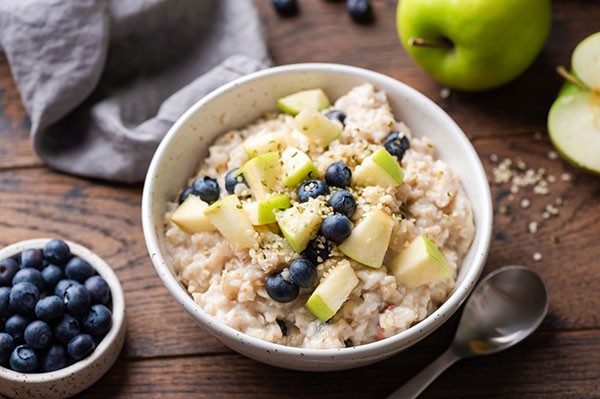Gastroesophageal reflux disease (GERD), commonly known as acid reflux, can significantly impact your quality of life. One of the most effective ways to manage GERD symptoms is through dietary modifications. This guide provides a comprehensive overview of What Foods To Avoid With Gerd and offers suggestions for foods that may help alleviate your symptoms.
Understanding GERD and Its Triggers
GERD occurs when stomach acid frequently flows back into the esophagus, irritating its lining. While a restrictive, bland diet was once the standard recommendation, current guidelines emphasize a more balanced approach. Identifying your personal trigger foods is key to managing GERD effectively.
Foods to Avoid with GERD: A Detailed List
Certain foods are known to exacerbate GERD symptoms. While individual tolerances vary, consider limiting or eliminating the following:
-
High-Fat Foods: Fatty and fried foods are slow to digest, increasing the likelihood of stomach acid refluxing into the esophagus. Examples include fried chicken, pizza, and fatty cuts of meat.
-
Spicy Foods: Spicy dishes can irritate the esophagus, intensifying heartburn symptoms. Chili peppers, curries, and heavily spiced meals should be consumed cautiously.
-
Acidic Foods: Citrus fruits (oranges, lemons, grapefruits), tomato sauces, and vinegar can increase stomach acid production and irritate the esophageal lining.
-
Chocolate: Chocolate contains compounds that can relax the lower esophageal sphincter (LES), allowing stomach acid to flow back up.
-
Caffeine: Coffee, tea, and energy drinks can stimulate acid production and relax the LES, contributing to reflux.
-
Onions: Onions, especially raw, can trigger heartburn in some individuals.
-
Peppermint: Despite its soothing properties, peppermint can relax the LES and worsen reflux symptoms.
-
Carbonated Beverages: Sodas and sparkling water can increase stomach pressure, forcing acid into the esophagus.
-
Alcohol: Alcohol can irritate the esophagus, increase stomach acid production, and impair LES function.
 bowl of oatmeal with blueberries and apple
bowl of oatmeal with blueberries and apple
Alt text: A close-up shot showcasing a delicious bowl of oatmeal, garnished with fresh blueberries and chunks of green apple, perfect for a GERD-friendly breakfast.
GERD-Friendly Foods: What to Eat Instead
While avoiding certain foods is crucial, incorporating GERD-friendly options into your diet can help manage symptoms and promote overall digestive health.
-
Non-Citrus Fruits: Bananas, melons, apples, and pears are gentle on the stomach and less likely to trigger reflux.
-
Vegetables: Raw or steamed vegetables are generally well-tolerated. Avoid adding excessive amounts of oil or high-fat sauces. A fresh tomato may be better tolerated than tomato sauce.
-
Lean Meats: Grilled, poached, broiled, or baked lean meats (chicken, turkey, fish) are good protein sources. Season with fresh herbs instead of spices.
-
Whole Grains: Oatmeal, whole-grain bread, rice, and couscous provide complex carbohydrates and fiber, promoting healthy digestion.
-
Healthy Fats: Unsaturated fats from olive oil, avocados, nuts, seeds, and fatty fish (salmon, trout) are preferable to saturated and trans fats.
Lifestyle Adjustments for GERD Management
In addition to dietary changes, certain lifestyle modifications can significantly reduce GERD symptoms:
-
Smaller, More Frequent Meals: Eating smaller meals more often throughout the day can prevent overfilling the stomach and reduce pressure on the LES.
-
Avoid Lying Down After Eating: Remain upright for at least three hours after meals to allow gravity to keep stomach acid down.
-
Don’t Eat Before Bed: Avoid eating anything for three to four hours before bedtime.
-
Avoid Vigorous Exercise After Eating: Wait a couple of hours after eating before engaging in strenuous physical activity.
Finding What Works for You
Managing GERD effectively often requires a process of trial and error. Keep a food diary to track your symptoms and identify your specific trigger foods. By understanding what foods to avoid with GERD and incorporating GERD-friendly alternatives, you can significantly improve your digestive health and overall well-being. If symptoms persist, consult with your healthcare provider for further evaluation and treatment options.